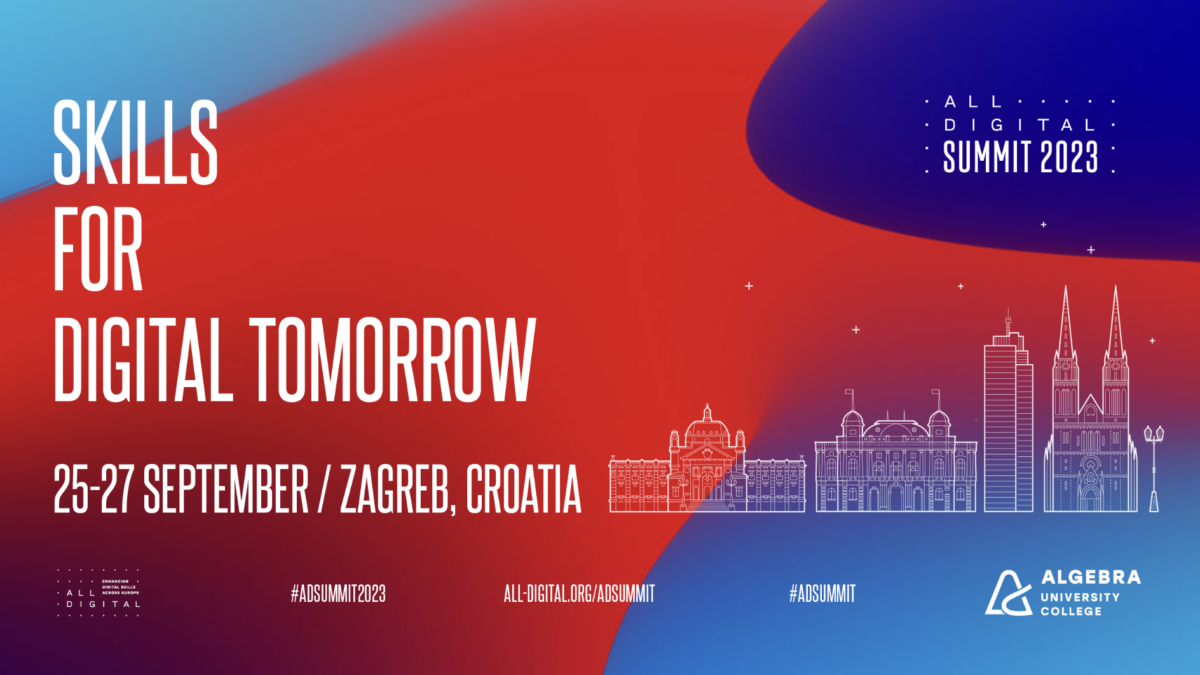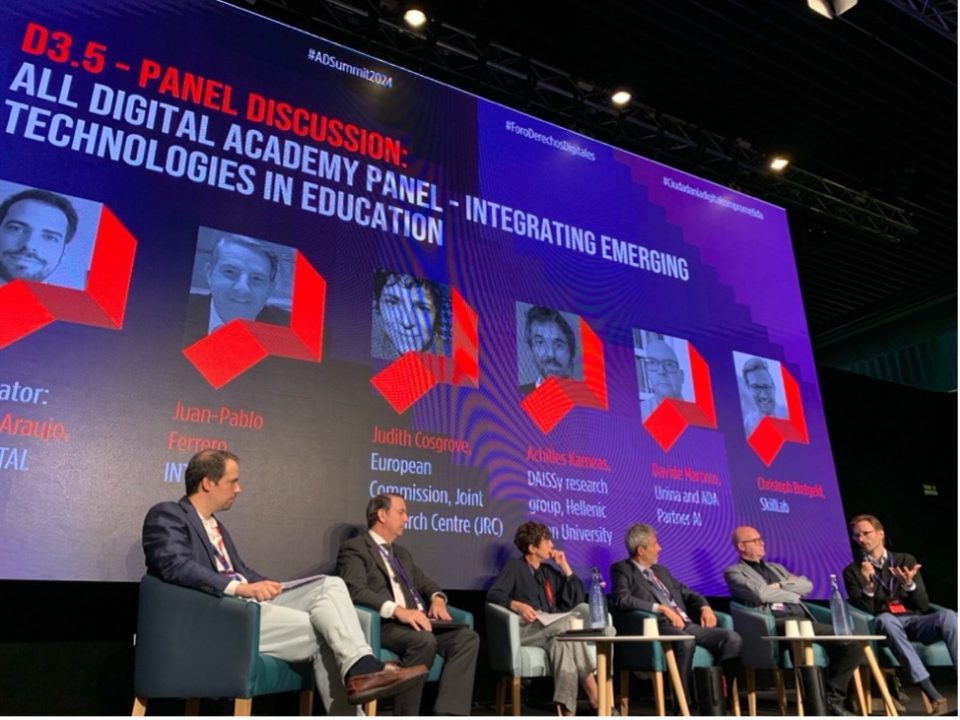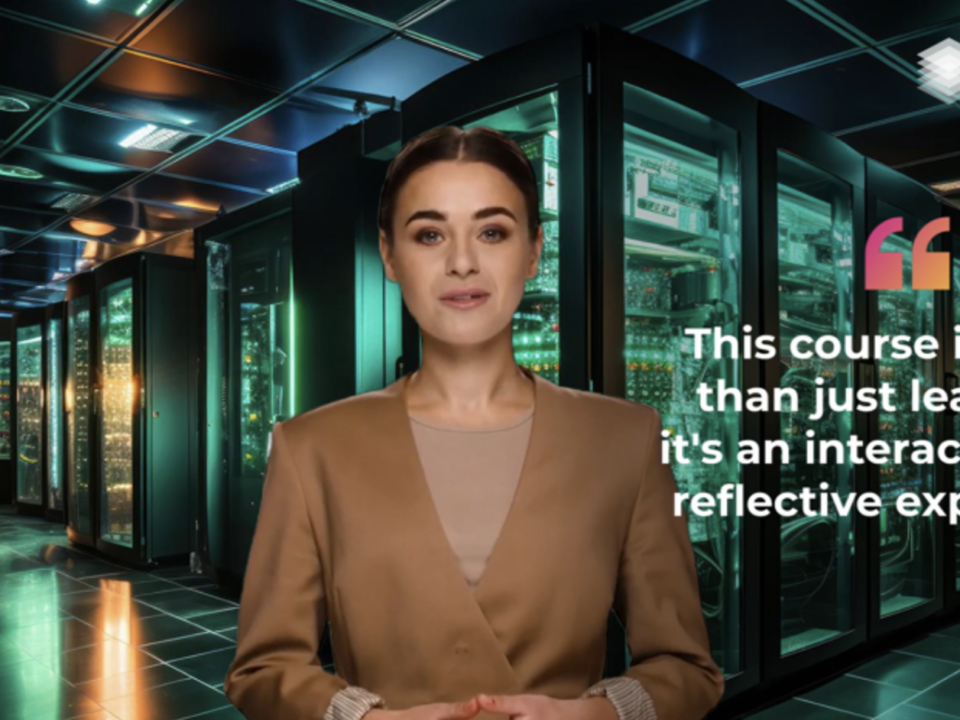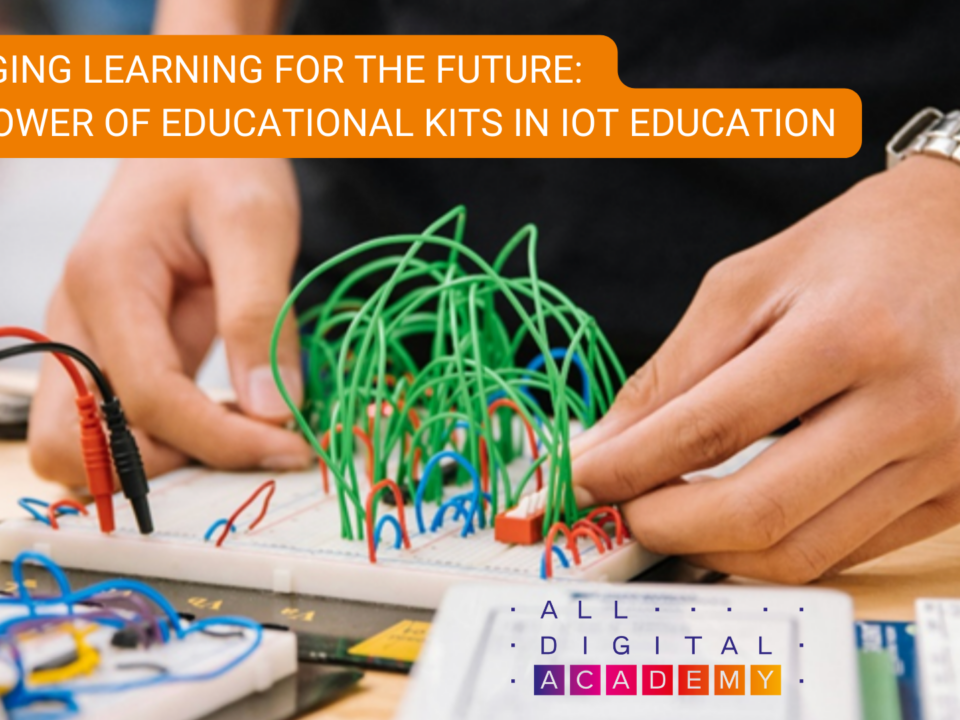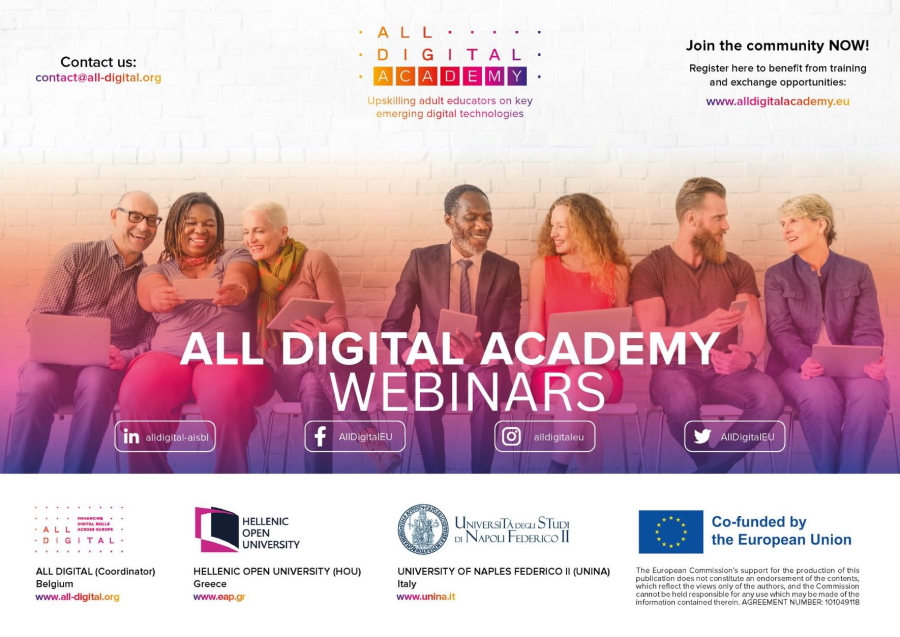
All Digital Academy Webinars – sharing experiences and results
May 9, 2023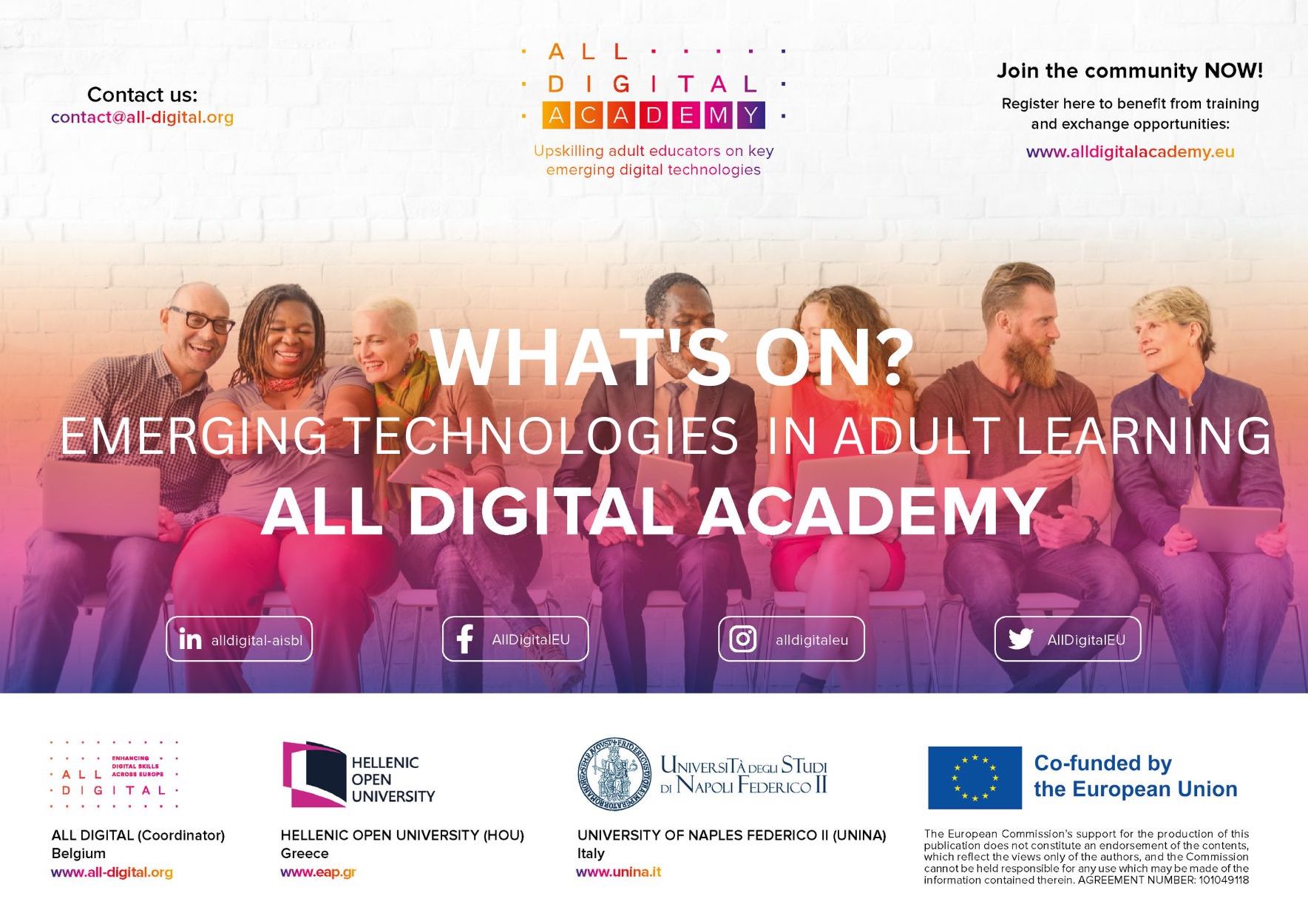
AI Policy Discussion at the European Commission Adult Learning Work Group
August 9, 2023Dear ADA stakeholders,
You are hereby invited to the ALL DIGITAL Academy Workshops, at the All Digital Summit 2023, on the 26 and 27 of September 2023, in Zagreb.
These sessions offer the opportunity to make the first steps in the design of learning activities for different target groups, using the DigComp framework as a support tool, on the topic of “Content Generation with artificial intelligence-based tools”.
This general topic will be addressed at the three DigComp macro proficiency levels in as many distinct workshop sessions, with participants split into small working groups. After deciding the potential target groups (learners), likely duration and specific topics of their future educational activity, working groups will be asked, with the help of the DigComp framework, to draft learning outcomes[1]and identify related learning activities that will help learners to gain proficiency in the following manner:
- at the foundation level, the aim is to develop basic knowledge, skills, and attitudes to interact with generative AI tools for content creation (e.g. a large language model-based tool such as Bing Chat). The focus of this session will be on designing simple tasks for learners to gain autonomy to work with such tools in a confident, critical and responsible way. An important aspect at this level is to plan learning activities that provide guidance to learners when needed, so as to support them to become more independent users of such tools;
- at the intermediate level, the focus will shift to designing learning activities that focus on well-defined routine tasks when interacting with generative AI tools for content creation, and for users to solve straightforward problems independently. At this level, learning activities should allow learners to use generative AI tools for content creation according to their own needs;
- at the advanced level, the focus will be on designing learning activities where learners have to apply their new skills to more complex non-routine tasks (e.g. write an original script for a short film about the history of Zagreb) and independently choose the most appropriate tools for the given task. The design of learning activities can also include guiding or tutoring other learners, for example, in a complex context such as in collaborative problem-solving tasks (e.g. group work using ChatGPT to write an original script for a short film about Zagreb).
Addressing the topic of generative AI tools for content creation (e.g. text, image, video) at the different levels, the aim for the learning activities is to include the following:
- some basic knowledge about generative AI tools and their basic functions;
- skills on how to interact with these tools following responsible, safe and privacy-enhancing behaviours;
- a critical approach to the validity, reliability and impact of such tools while being aware of the ethical principles involved in engaging with such technologies. Therefore, educational activities can include steps to make students reflect and discuss, also based on their previous experiences, the best use of AI tools and the implications of different approaches to these tools in education.
Lastly, while designing learning outcomes and related learning activities at a given level, participants will be asked to reflect on how to support learners in getting from one level to another. Additionally, attention should be paid to the assessment which can be planned in many different ways. For example, is active participation in the course enough, or are other proofs of achieved learning required (e.g. creation of an end-product, self-assessment, peer assessment)?
[1] Learning outcomes are ‘…statements of what an individual should know, understand and/or be able to do at the end of a learning process, which are defined in terms of knowledge, skills and responsibility and autonomy’ https://www.cedefop.europa.eu/en/publications/4209. Usually learning outcomes are expressed from the students’ perspective, and are measurable and assessable.
HOW TO JOIN THE WORKSHOP
Register by answering our Call for Expression of Interest. By answering the form we will be able to organize the the activities into small groups (8 participants), each one facilitated by an ALL DIGITAL guide (5 of them), for a maximum of about 40 participants in total.
To allow ALL DIGITAL to optimize the organisation and management of the working groups, please fill-out this form before July 28th, 2023.
The working groups’ guides will be:
- Riina Vuorikari
- Sandra Troia
- Nicola Bruno (tbc)
- Stefano Kluzer

